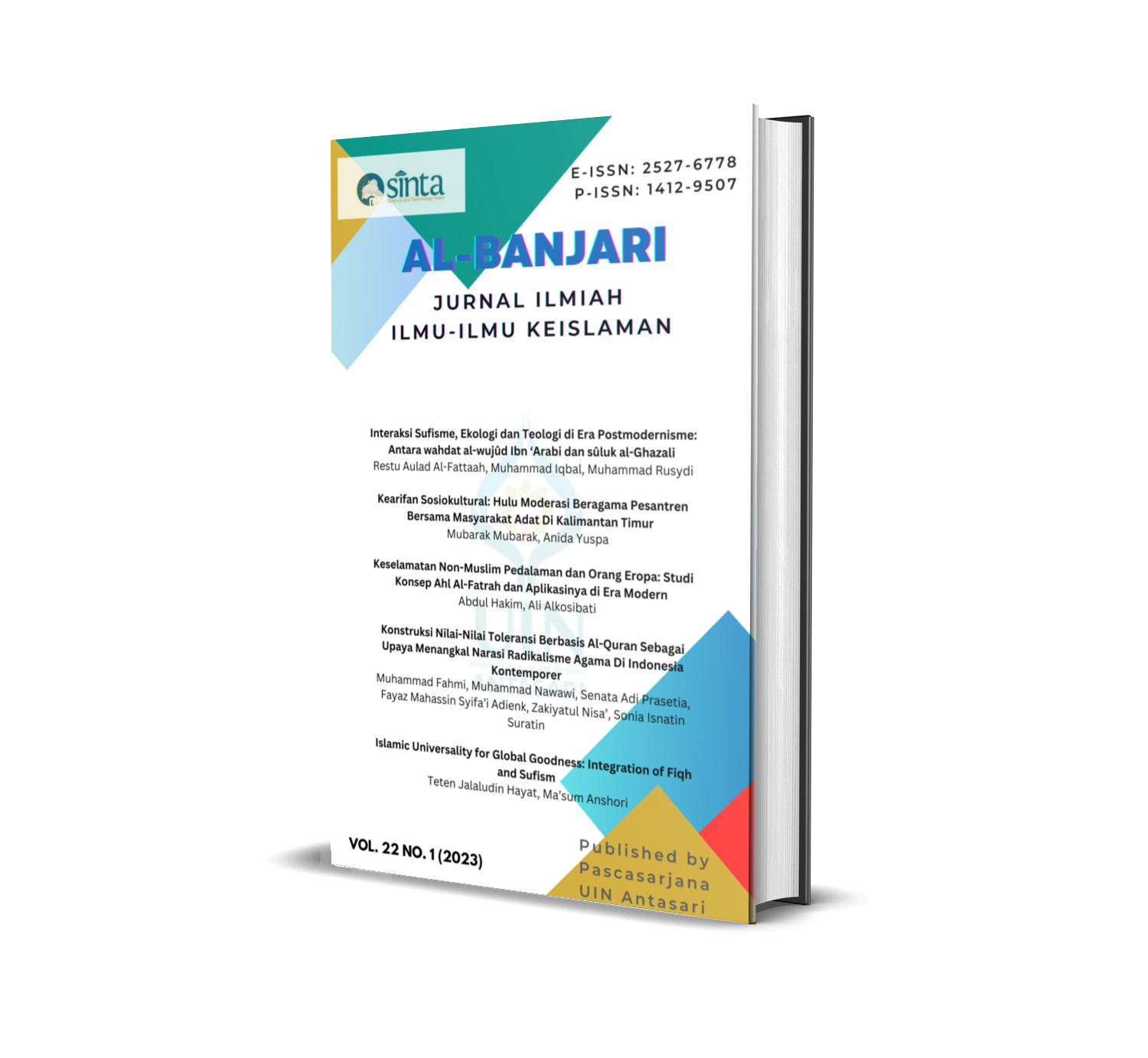Unveiling The Fiqh Treasures: Kitab Sabilal Muhtadin By Sheikh Muhammad Arsyad Al-Banjari
DOI:
https://doi.org/10.18592/albanjari.v22i2.12099Abstract
This research deeply explores the interpretation of fiqh verses in the book 'Sabilal Muhtadin' authored by Sheikh Muhammad Arsyad al-Banjari and its connection to the Banjar community. The book, an extensive exploration of the Syafii school of thought, intricately weaves together fiqh, hadith, and Qur'anic interpretation. Analyzing over 184 traditions across two volumes, al-Banjari not only references renowned scholars but also introduces independent perspectives on Islamic law. His method of interpreting legal verses, incorporating vocabulary analysis and Prophet Traditions, showcases a comprehensive understanding deeply rooted in scholarly tradition. Moreover, this research highlights the fusion of various interpretative styles within Sabilal Muhtadin, positioning it as an amalgamation of textual evidence and reasoned analysis—a unique contribution to the realm of Islamic jurisprudence. The category of tafsir is characterized by fiqhi and the method is divided into three; tafsir with history, tafsir with ra'yu (linguistic analysis, kias and logical reasoning), and combined tafsir (idzdiwaji).Downloads
Published
2024-01-18
Issue
Section
Articles
License

This work is licensed under a Creative Commons Attribution-ShareAlike 4.0 International License.
Authors who publish with this journal agree to the following terms:
- Authors retain copyright and grant the journal right of first publication with the work simultaneously licensed under a Creative Commons Attribution License that allows others to share the work with an acknowledgement of the work's authorship and initial publication in this journal.
- Authors are able to enter into separate, additional contractual arrangements for the non-exclusive distribution of the journal's published version of the work (e.g., post it to an institutional repository or publish it in a book), with an acknowledgement of its initial publication in this journal.
- Authors are permitted and encouraged to post their work online (e.g., in institutional repositories or on their website) prior to and during the submission process, as it can lead to productive exchanges, as well as earlier and greater citation of published work (See The Effect of Open Access).


































